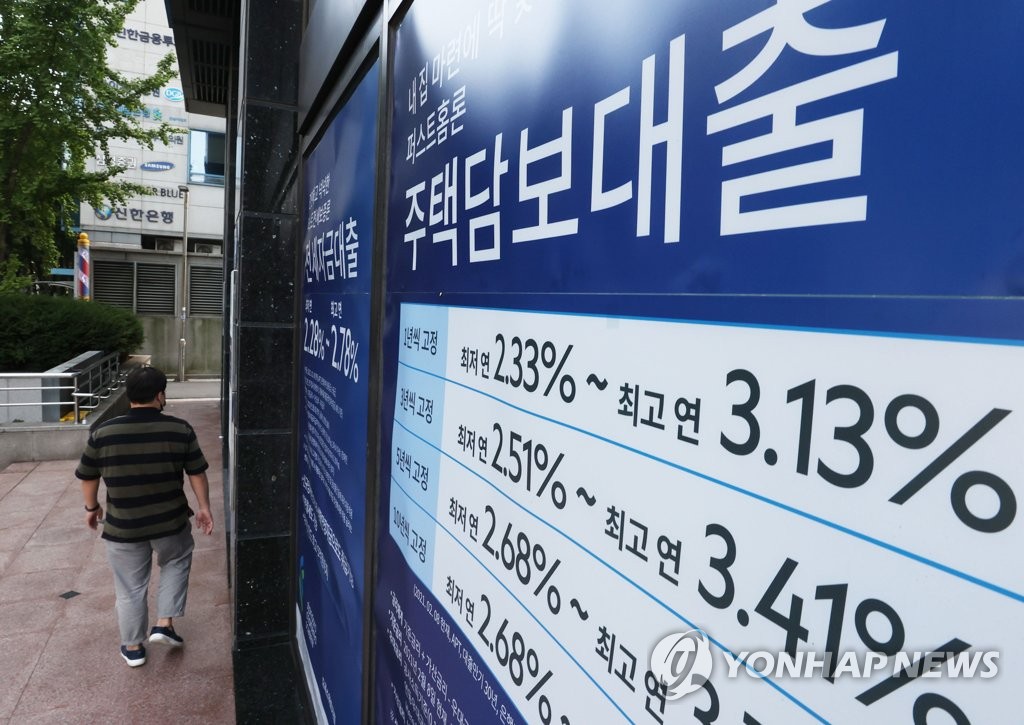 |
| ▲ This file photo, taken Oct. 3, 2021, shows information about a bank's loan programs on the exterior of a lender in Seoul. (Yonhap) |
financial regulator-banks
Money supply of banks in S. Korea remains stable: financial regulator
SEOUL, Nov. 30 (Yonhap) -- Money supply of major lenders in South Korea continues to remain stable despite a slight drop in deposits, the country's financial regulator said Thursday.
The Financial Supervisor Service (FSS) noted a sharp decline had been expected in funds managed by local banks due to the high anticipated volume of maturing savings on high interest rates, possibly causing a shortage of funds, especially for lower income households.
Won-denominated deposits at banks came to 2,055.2 trillion won (US$1.59 trillion) as of end-October, down 0.45 percent, or 9.2 trillion won, from a month earlier, the FSS said, adding the amount "maintains a stable level despite a slight change caused by seasonal factors."
Deposits at non-bank institutions, such as savings banks and credit unions, came to 731.3 trillion won at the end of last month, down from 735.6 trillion won tallied a month earlier, according to the FSS.
"The recent drop in deposits at savings banks is largely attributed to the banks' efforts to increase their deposits preemptively during July-September and boost their money supply before rates for deposits go up in the fourth quarter," it said.
It added that rates paid on deposits at savings banks went up slightly from a month earlier but dropped sharply from a year before in October. The rate paid on fresh deposits at savings banks came to 4.31 percent on average in October, compared with 5.22 percent the same month last year.
"When considering the level of liquidity currently available, there exists nearly no possibility of any problems caused by a liquidity shortage (at savings banks), and it is rather expected to help greatly improve their profitability by significantly lowering the cost of financing," the FSS said in a press release.
The FSS added it launched a real-time monitoring system last month to check changes in deposits at banks and non-bank institutions.
"It plans to act swiftly and timely when and if any signs of problems are detected," the financial regulator said.
(END)
(C) Yonhap News Agency. All Rights Reserved























![[가요소식] 조항조, 새 싱글](/news/data/20251116/yna1065624915927473_582_h2.jpg)










